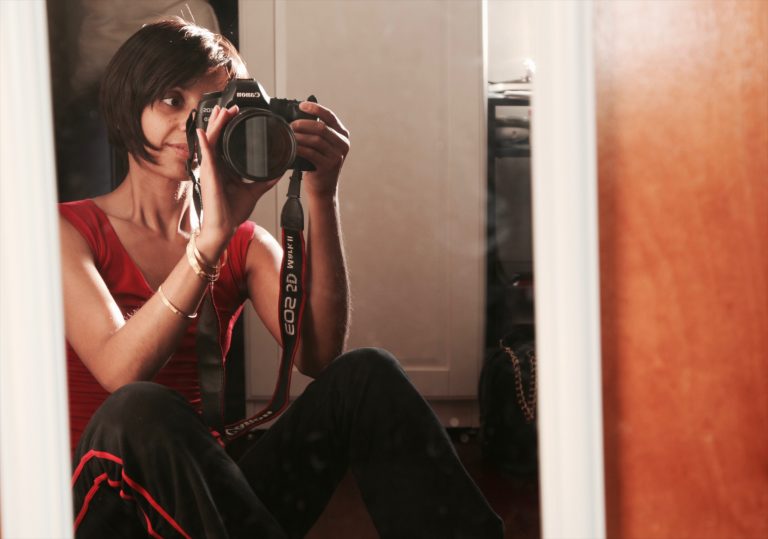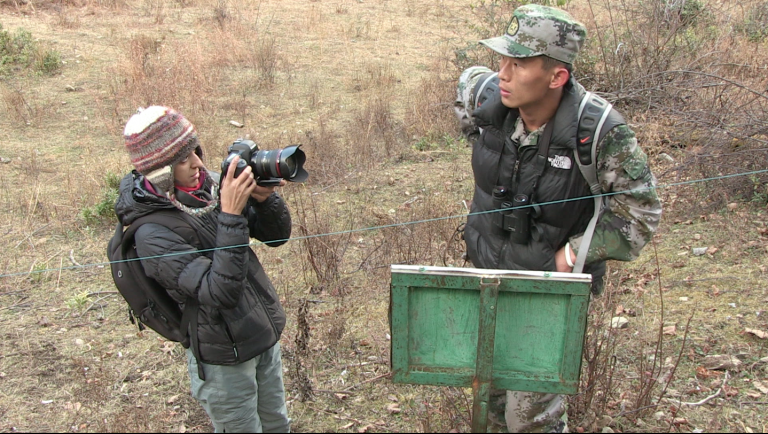

Umbreen Butt graduated from UBC Journalism in 2015 and is now a New York-based documentary filmmaker.
She has worked for the BBC, CBS and The History Channel as a fixer, videographer and associate producer. She has also directed films for various United Nations agencies, the Islamic Development Bank and other international aid and media organizations.
Butt has worked extensively in Pakistan, and other countries in the Far East, with a focus on human rights and social justice.
During her time at the j-school, Butt was a student in the International Reporting Program and helped produce the award-winning project “China’s Generation Green.”
How did your j-school experience help you transition into a career in journalism?
Before graduate school, I worked as an advocacy filmmaker. Advocacy work claims a clear position from the start and every fact presented reinforces that premise. It doesn’t seek to the appearance of neutrality.
At the j-school, I had to fact check every statement and draw on credible sources. I learned to take ownership of my words and to become more cognizant of my world view. I now consider my ideas more rigorously during pre-production, which leaves me better prepared when workshopping a piece with editors and producers. I can field their questions, defend my ideas and weigh their critique.
There’s real energy that you leave grad school with: a buzz over having completed this monumental task, and a confidence that you have the skills to make it in the professional world.
Of the lessons you learned at UBC, which one has proven to be the most valuable?
I learned how news organizations employ a variety of storytelling strategies and techniques. This helped me to tailor pitches more effectively, taking into account audience, style, medium and distribution platform.
Has the j-school alumni network been helpful for you in terms of finding stories, sources, support and jobs?
I was commissioned to take photos for a magazine feature written by my classmate, Joel Barde. We had both taken Reporting in Indigenous Communities at UBC Journalism and partnered for the Advanced Digital Video class. The magazine project gave me the opportunity to camp out at a yearly gathering of the Cree community on St. George Island in northern Quebec.
There, I was able to witness how self-government was crucial to preserving Indigenous culture. The road signs were all written in the Cree language, which most people in the community spoke at home and at school.


Butt is pictured here in China, where she reported for UBC Journalism’s International Reporting Program. (Supplied)
There were numerous education facilities in the community to accommodate large families. Children were allowed to leave school for a month at a time without being penalized, so they could live in the bush and learn to hunt with their grandparents and parents.
Until then, self-government was a concept to me. I had marched for it during Idle No More protests, but witnessing it in person turned it into a political conviction. It’s also informed Joel’s later work on Christianity, imperialism and Indigenous communities in the North.
The value in the relationships with my peers goes beyond finding work or an apartment. It’s about a shared curiosity and ideas that are evolved over the course of a journey. It’s about critiquing and supporting each other’s personal, creative and intellectual processes.
What’s been the piece of journalism you’ve produced of which you’re most proud?
I recently produced a digital documentary for The Retro Report with The New York Times. The Retro Report looks at stories that made headlines in the past and their implications today. Its format is counter-intuitive to how I create films. The series is scripted and fast-paced. The information is presented only once, rather than repeated three times, which is the standard television format. It made for an immense learning curve.
The series is tailored to an older cerebral audience with an interest in politics. Its length allows for interviews, archival news clips, headlines and b-roll. It unpacks a lot of meaning: How do stories that seem like old news continue to affect our collective psyche today? Making those linkages was perhaps the most gratifying part of the project.
Would you recommend the j-school to aspiring journalists? If so, why?
Yes. There’s real energy that you leave grad school with: a buzz over having completed this monumental task, and a confidence that you have the skills to make it in the professional world.
You’re also equipped with a portfolio that showcases your skills. And you make invaluable relationships with mentors, who are crucial when you need a reference or career advice.
Finally, you have a network of peers who are experiencing a similar transition and can support you.


